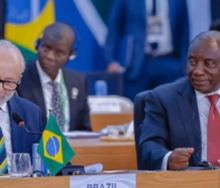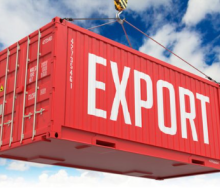Motorists and fleet owners will get significant relief at the fuel pumps from Wednesday after prices dropped significantly at midnight on July 3.
The latest fuel price decreases come after the price of Brent crude oil remained stable and the rand strengthened, following the announcement of the government of national unity and the appointment of a new cabinet.
According to the Department of Minerals and Petroleum’s (previously the Department of Mineral Resources and Energy) latest fuel price adjustment, announced in a statement on Tuesday, the price of petrol 93 ULP will drop by R1.05 per litre, and petrol 95 ULP will decrease by 99c/l. The price of diesel (0.05% sulphur) will decrease by 30c/l and the price of diesel (0.005% sulphur) will drop by 24c/l.
The price of illuminating paraffin will drop by 18c/l and the maximum LP gas retail price will decrease by 22c per kilogram.
South African fuel prices are influenced by international oil and fuel costs and the rand/dollar exchange rate.
The average Brent oil price decreased from $82.98 a barrel to $82.24 during the period under review. The department said the main contributing factors to oil price stability was increased oil production by the United States and other countries that do not belong to the Organization of the Petroleum Exporting Countries. A slow down in global economic growth was also a factor that led to more steady pricing.
United Association of South Africa (UASA) trade union spokesperson Abigail Moyo welcomed the drop in fuel prices saying it would provide relief for consumers who are facing an affordability crisis due to the municipal tariff hikes that took effect on July 1.
“Living costs have become a nightmare for South Africans as inflation remains high and disposable income fails to match household expenses,” Moyo said.
“While the decrease is welcome, the average South African still struggles to fill their tank or afford public transport. The Department of Mineral and Petroleum Resources should review the fuel pricing structure to provide relief for workers,” she said.
She said Mineral and Petroleum Resources Minister Gwede Mantashe “must take note that most South Africans merely survive while trying to make it through the month and consider the basic needs of consumers”.
“UASA urges Mantashe to push for a pricing structure review to help make fuel prices affordable again,” said Moyo.
She said the union trusted that the knock-on effect of the price cut will stem inflation and result in lower prices for public transport and lower costs in the food, agricultural and manufacturing sectors.













